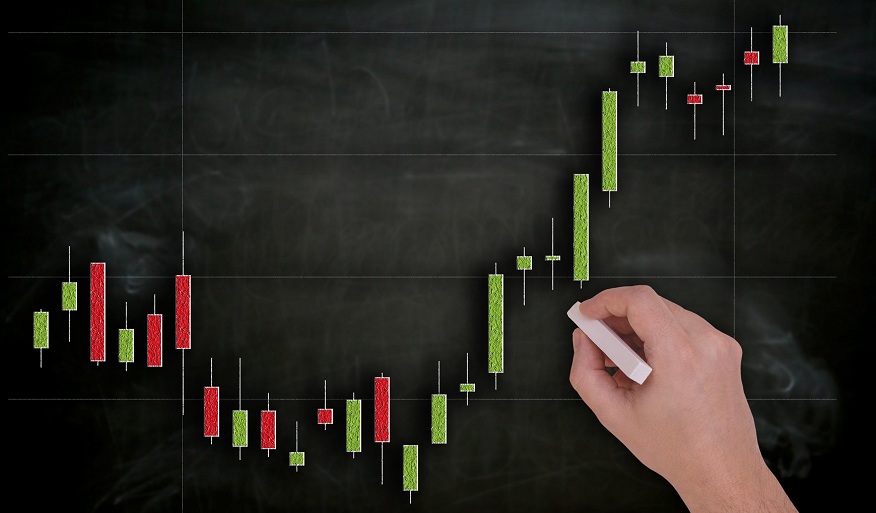Introduction
Traders who want to profit from price changes in different financial markets have a lot of opportunities with futures trading. However, novices could find the futures markets daunting due to their complexity and volatility. In order to succeed in this environment, traders need to equip themselves with discipline, strategy, & expertise. We will examine seven thorough strategies in this post to assist traders in becoming proficient in futures trading and improving their chances of success.
TIPS FOR FUTURE TRADING
Get the Basics of Futures Trading Right:
Understanding the principles behind futures contracts is essential before beginning to trade futures. Financial contracts known as futures impose obligations on both the seller and the buyer to sell an item at a fixed price on a predefined future date. These contracts enhance finding prices and provide liquidity since they are standardized and exchanged on regulated exchanges.
It is important for traders to understand fundamental ideas, including contract specifications, expiry dates, leverage, and margin requirements. In addition, making wise trading selections requires an awareness of the variables affecting futures pricing, including demand as well as supply dynamics, economic indicators, political developments, and market emotion.
Create a Sturdy Trading strategy:
A trading strategy that is well stated may be used as a guide to help you navigate the futures markets. It lists your goals, level of risk tolerance, requirements for entrance and exit, size of positions, and backup plans. Traders are subject to dynamic decisions and impulsive acts when they lack a well-defined strategy, perhaps resulting in substantial losses.
Take into account elements like timeframes, risk management plans, and methods for market research while creating your trading strategy. To find possible trade settings, make use of tools for technical analysis, including trend lines, indicators, and chart patterns. To determine the underlying causes of market fluctuations, add fundamental analysis to your arsenal.
Practice Risk Management:
To protect assets and minimize losses when trading futures, risk management is essential. You can guard against unfavourable market movements by putting in place risk management procedures, such as stop-loss orders, stock limits, and portfolio diversification.
As a popular risk management strategy, traders can apply the 2% rule, which states that they shouldn’t put at risk in excess of two percent of their trading capital upon anything single. Traders can protect all of their capital bases by complying with this rule, which reduces their risk of losses on specific transactions.
In addition, it is critical to track and modify risk management parameters in response to changes in the market. Reevaluate your risk tolerance on a regular basis, change position sizes as necessary, and stick to your approach to risk control with discipline.
Keep Yourself Informed and Adjust to Market Conditions:
Economic data updates, geopolitical changes, central bank regulations, and demand and supply patterns are just a few of the many variables that shape the volatile and ever-changing demo futures trading market. Keeping up with current affairs can give you important insights into market conditions and possible trading opportunities.
Furthermore, maintain an agile and adaptable trading strategy to handle shifting market conditions. When new trends, levels of volatility, and shifts in investor mood emerge, be ready to modify your strategies. To spot breakout possibilities, trend reversals, and important support or resistance levels, use technical evaluation.
To keep ahead of the curve, make use of technology and trading platforms that have sophisticated charting tools, real-time data feeds, and placing order capabilities. Traders can profit from market possibilities and efficiently manage risks by remaining knowledgeable and flexible.
Practice Self-Control and Patience:
Emotional fortitude, self-control, and patience are necessary for profitable futures trading. Refrain from giving in to fear and greed-driven impulses, as well as the temptation to chase after fast profits. Remember to stay long-term focused, adhere to your trading plan, and use your pre-established entry and exit criteria.
Instead of forcing trades in adverse market conditions, wait patiently for high-probability trade scenarios to materialize. In the same vein, practice self-control in following risk management procedures and refrain from making snap judgments motivated by emotions.
Establishing an organized trading routine will reduce the influence of emotional biases and reinforce good habits. Make time specifically for trade execution, market analysis, and performance assessment. Keeping a trade journal and routinely analyzing your results can help you gain an important understanding of your advantages, disadvantages, and areas for development.
Keep Learning:
Technological developments, alterations in regulations, and changes in macroeconomic conditions are the main forces behind the ongoing evolution of the futures markets. Make an effort to lifelong development and ongoing education if you want to stay ahead in this fast-paced environment.
Invest in developing your knowledge and abilities by signing up for seminars, online classes, books, and mentorship programs. Follow the latest developments in the market, industry trends, and professional traders’ trading tactics. Join in discussions, networking groups, and trading networks to interact with other traders and share experiences, ideas, and insightful information.
You can improve your ability to trade and your ability to adjust to shifting market conditions by never ceasing to learn new things and by keeping up with business trends.
Control Emotions and Preserve Psychological Equilibrium:
One of the most difficult aspects of trading futures successfully is probably emotional self-control. Anxiety, avarice, and hubris may impair judgment, cause illogical choices, and undermine trading results.
Stress-reduction strategies, self-awareness, and mindfulness are important ways to develop emotional resilience. Develop methods of coping, such as prayer, physical activity, or asking for help from peers and mentors, to cope with the inevitable fluctuations of trading.
A balanced outlook on trading results is also important. Avoid becoming obsessed with immediate results and instead concentrate on the process. Recognize that trading inevitably involves losses and use them as teaching moments to advance your skills.
Conclusion
In short, a blend of expertise, aptitude, self-control, and emotional fortitude is necessary to become a proficient futures trader in spectraglobal trading. In order to increase their chances of success in this fast-paced and demanding environment, traders should understand the basic principles of futures markets, create a solid trading plan, practice risk management, stay informed, practice patience as well as discipline, never stop learning, and efficiently manage their feelings. Always keep in mind that persistence and consistency are essential qualities of profitable futures traders. Aspiring traders can achieve their trading objectives through hard work and dedication.



